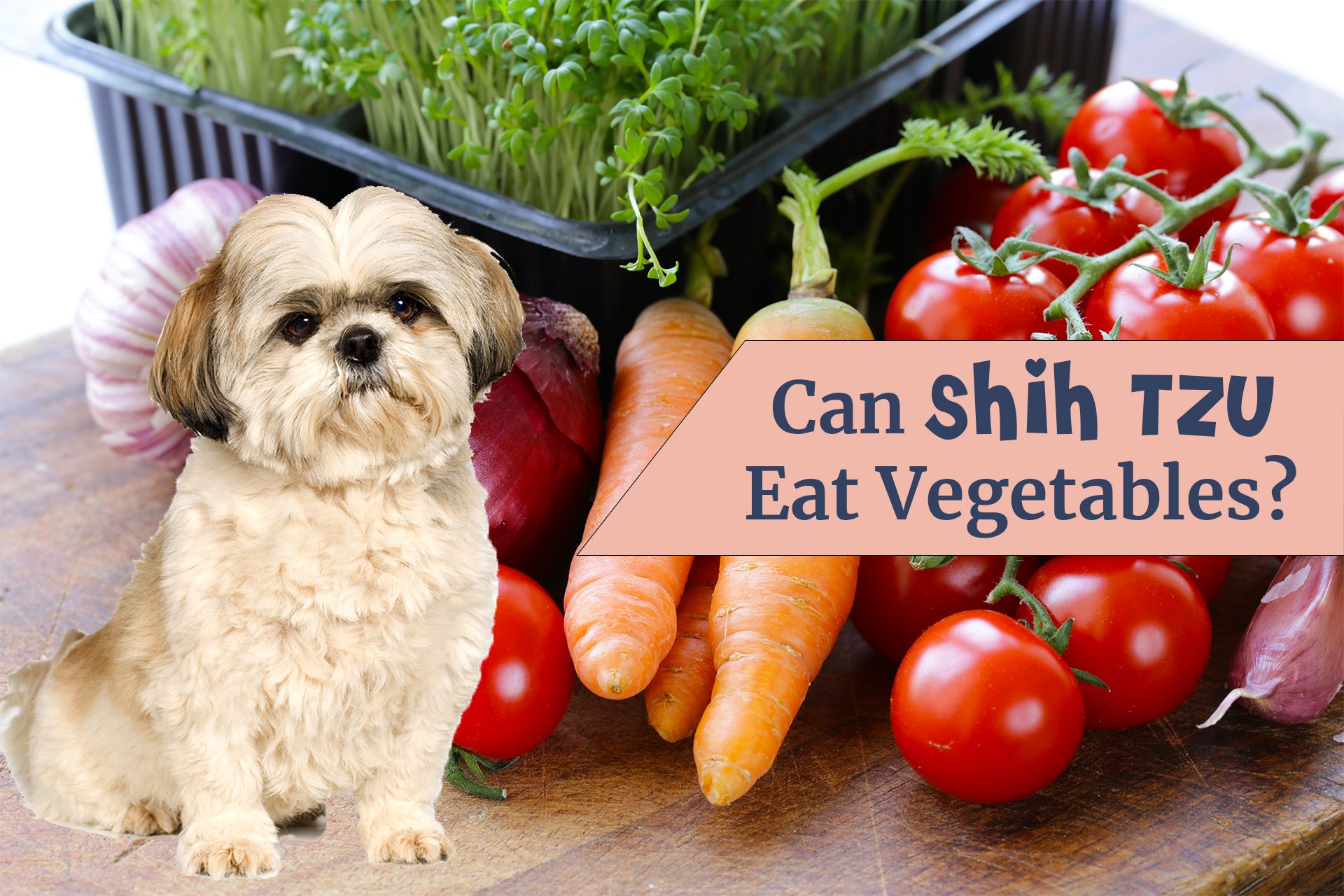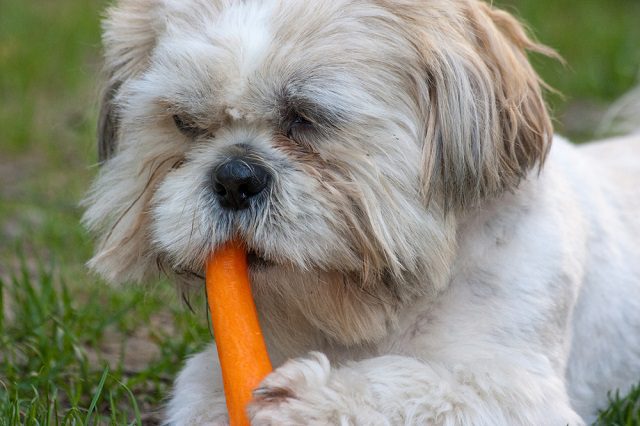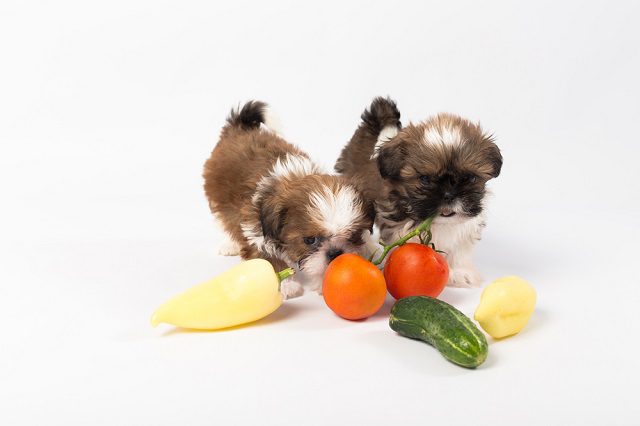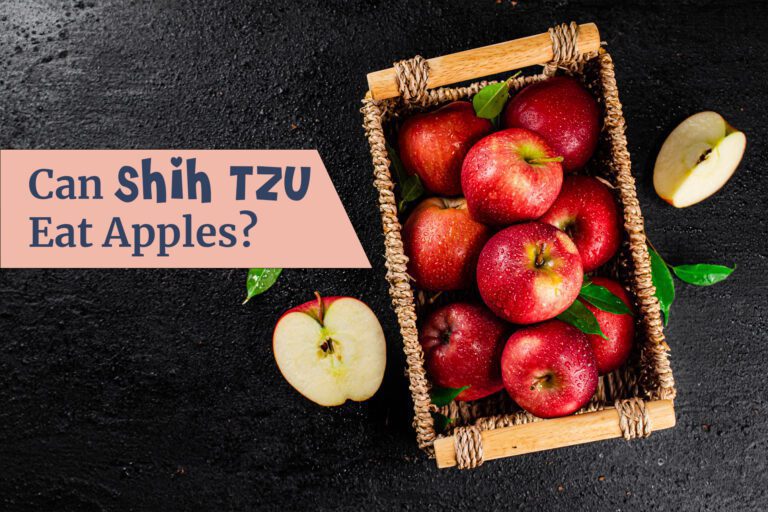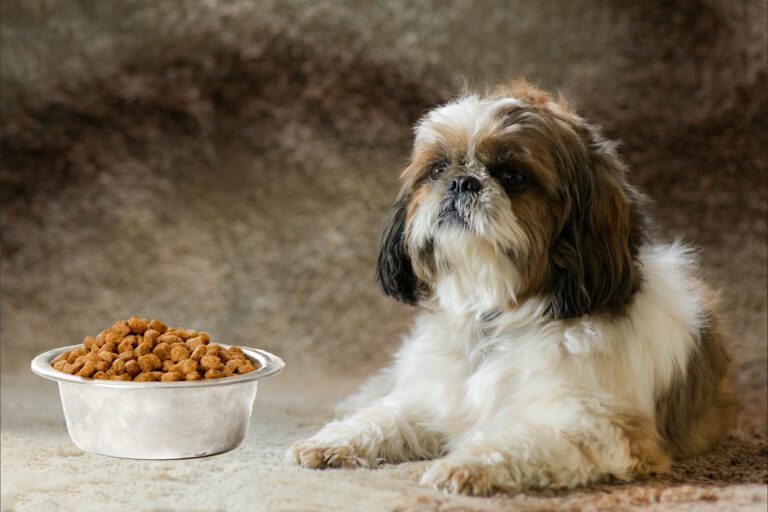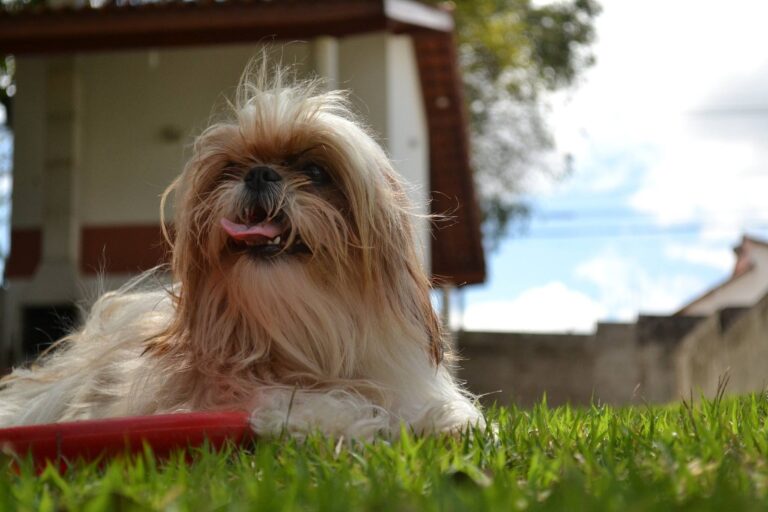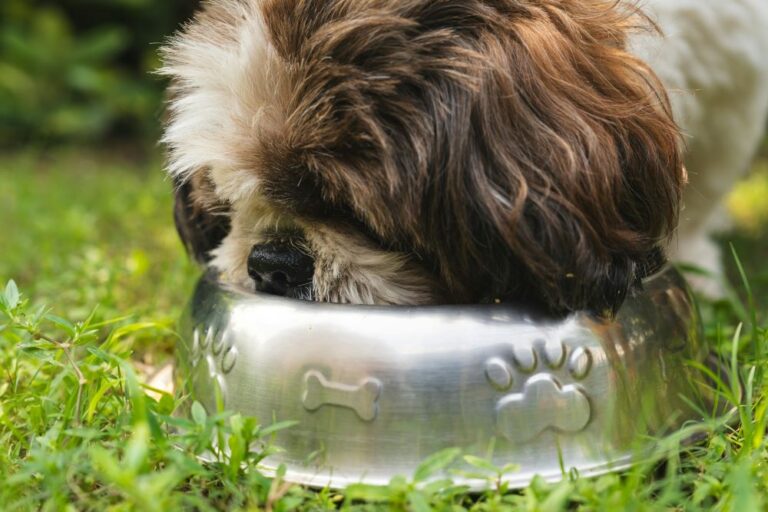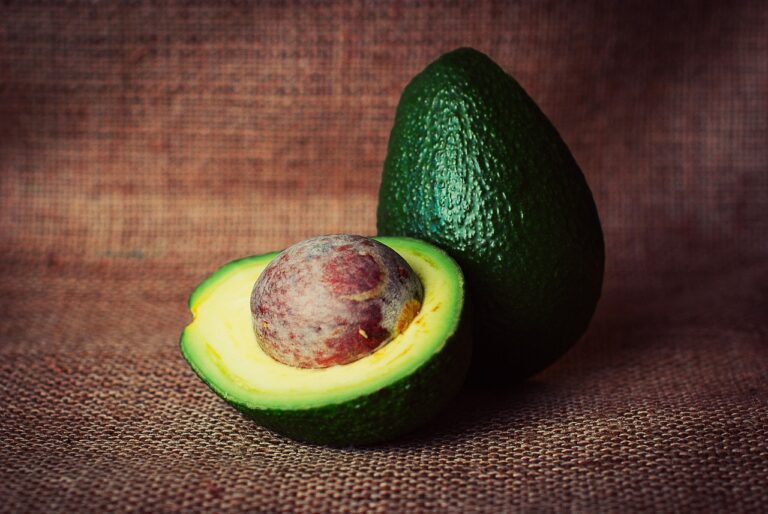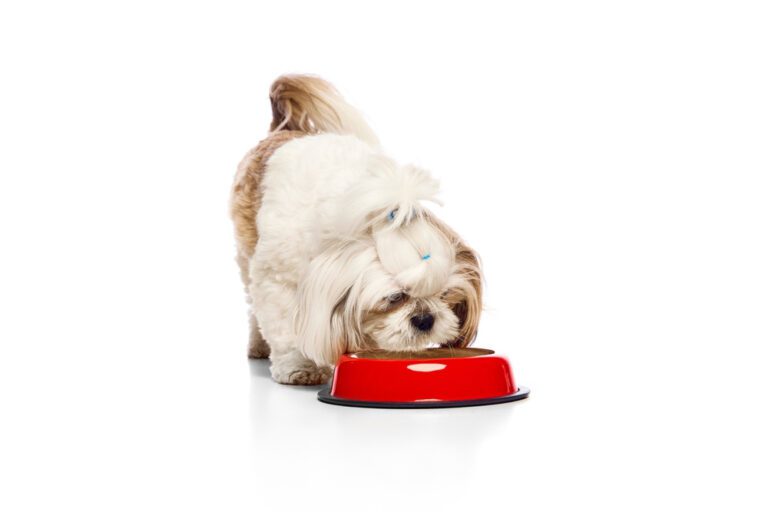Can Shih Tzu Eat Vegetables: Benefits & Disadvantages
Did you know your fluffy Shih Tzu friend might love veggies as much as you do? Imagine your cute pup munching on a crunchy carrot or enjoying a piece of sweet potato. It sounds adorable, right? But as a caring pet parent, you might wonder, ‘Can my Shih Tzu eat vegetables safely?
Vegetables aren’t just tasty snacks for humans; they can also be a healthy addition to your Shih Tzu’s diet! But hold on, not all veggies are good for them. Just like some foods are unsuitable for us, there are certain vegetables your Shih Tzu should never eat. It’s super important to know which ones are safe and which ones could make your furry friend feel unwell.
In this easy-to-understand guide, we will explore the wonderful world of vegetables for Shih Tzus. We’ll talk about the yummy and safe veggies your pup can enjoy, their nutritional benefits, and the vegetables that are a big no-no. Plus, we’ll share some fantastic tips on safely introducing these veggies into your Shih Tzu’s meals. So, let’s get ready to make mealtime fun and healthy for your adorable Shih Tzu!
What Vegetables Can Shih Tzus Eat?
Vegetables can be an essential part of a healthy diet for Shih Tzu. They are one of the human foods that Shih Tzu can eat. These are just a few examples of the many vegetables that are safe for Shih Tzu to eat.
-
Carrots
-
Broccoli
-
Cauliflower
-
Green Beans
-
Peas
-
Spinach
-
Sweet Potatoes
-
Zucchini
Carrots: Crunchy Treats for Healthy Teeth
Guess what? Carrots are like nature’s toothbrush for your Shih Tzu! When they crunch on these bright orange veggies, it helps clean their teeth. Plus, carrots are whole of vitamin A, which is excellent for their eyesight. But remember, too many carrots can lead to an upset tummy, so give them moderation.
Broccoli: Tiny Trees for a Vitamin Boost
Broccoli might look like tiny trees, but they’re big on vitamins! They’re packed with vitamin C and fiber, which are super good for your Shih Tzu’s overall health. Give broccoli in small amounts because too much might cause gas. And we all know how smelly that can be!
Cauliflower: A Mild Veggie for Sensitive Tummies
If your Shih Tzu has a sensitive stomach, cauliflower is a great choice. It’s gentle and full of nutrients. But just like broccoli, too much cauliflower can lead to gas. So, a little goes a long way!
Green Beans: Low-Calorie Snacks for a Healthy Weight
Want a low-calorie snack for your pup? Green beans are perfect! They help your Shih Tzu stay full without adding extra pounds. Plus, they’re crunchy and fun to eat. Just make sure they’re plain and not seasoned or cooked with oils.
Peas: Tiny Green Goodness
Peas are tiny but full of the good stuff, like vitamins and minerals. They’re perfect for your Shih Tzu’s skin and coat. Frozen or fresh peas make a great snack, but avoid canned ones because they have too much salt.
Spinach: A Leafy Green for Strong Muscles
Spinach is like a muscle-building food for your Shih Tzu. It’s full of iron and helps keep their muscles strong and healthy. Just give it in small amounts to avoid kidney problems.
Sweet Potatoes: Sweet and Healthy
Sweet potatoes are yummy and packed with vitamin A and fiber. They’re great for your Shih Tzu’s digestion and coat. Serve them cooked and mashed without any added spices or sugar.
Zucchini: Hydrating and Healthy
Zucchini is full of water and vitamins. It’s perfect for keeping your Shih Tzu hydrated and healthy. Plus, it’s low in calories, making it an excellent snack for dogs watching their weight.
Remembering the Veggie Rules
While all these veggies are safe for Shih Tzus, there are some rules to remember. Always introduce new foods slowly and in small amounts. And it’s always a good idea to check with your vet before significantly changing your Shih Tzu’s diet. After all, each Shih Tzu is unique, and what works for one may not work for another. Keep their meals balanced, fun, and full of love, just like your adorable furry friend!
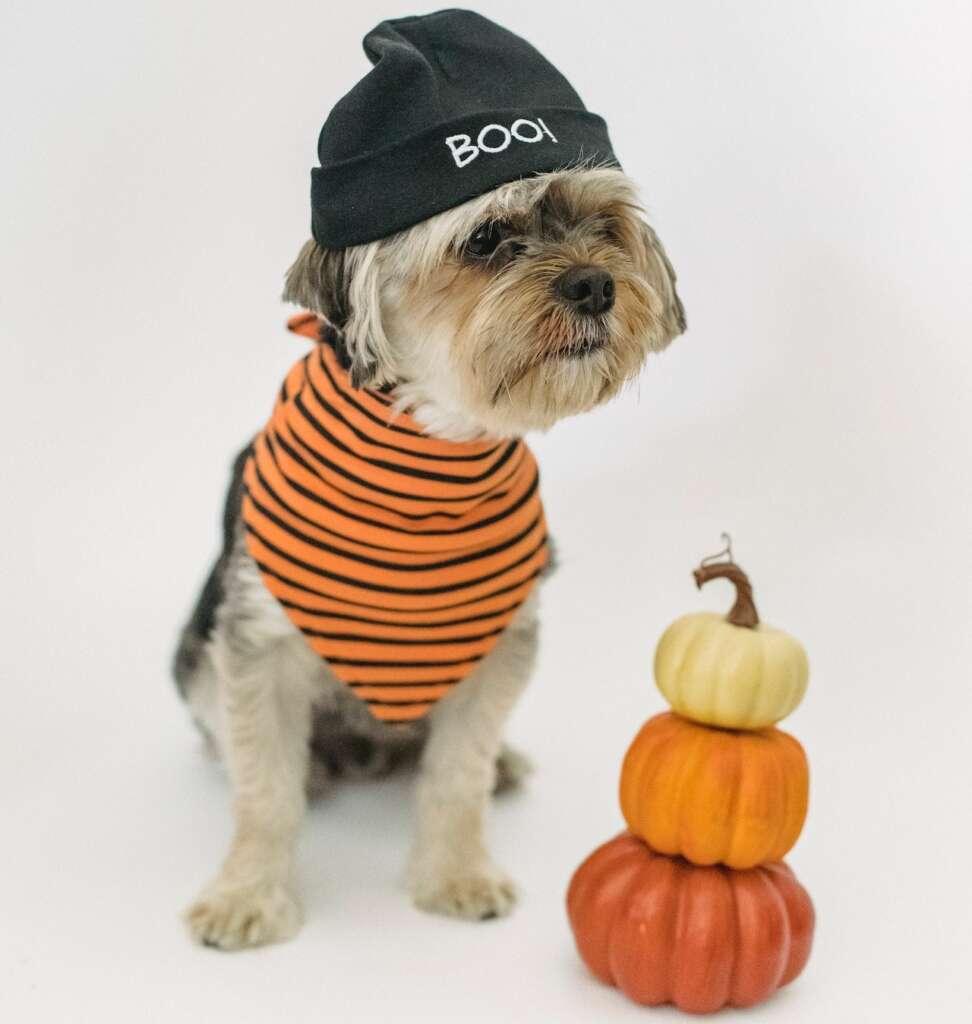
Nutritional Benefits of Vegetables for Shih Tzus
A Rainbow of Vitamins
Vegetables are like a treasure chest of vitamins! Each color in veggies means different vitamins. For your Shih Tzu, these vitamins are super essential. They help keep their eyes sparkly, skin healthy, and bones strong. For example, vitamin A in carrots is fantastic for their vision, and vitamin C in broccoli boosts their immune system. It’s like each veggie is a superhero for their health!
Minerals for Mighty Mutts
Like superheroes need their tools, Shih Tzus needs minerals to stay mighty and strong. Vegetables contain minerals like calcium for strong bones and iron for powerful muscles. Think of spinach – it’s full of iron, which helps your Shih Tzu run and play without getting tired quickly.
Fiber for Fantastic Digestion
Did you know that fiber in vegetables is a secret weapon for your Shih Tzu’s digestion? It helps them digest their food quickly and keeps their tummy happy. Foods like sweet potatoes and peas are great because they have lots of fiber. A happy tummy means a happy Shih Tzu!
Natural Weight Control
Vegetables are like a natural weight-watchers program for your Shih Tzu. They have fewer calories but make them feel full. So, if your furry friend needs to watch their weight, veggies like green beans are perfect. They can munch on them without worrying about gaining those extra pounds.
Hydration Heroes
Some vegetables, like zucchini, are full of water. This is great for keeping your Shih Tzu hydrated, especially on hot days. Hydration is super important for their overall health. It keeps their skin nice and their body working just right.
Allergy-Friendly Options
If your Shih Tzu has allergies, don’t worry! Many vegetables are allergy-friendly. They can be a safe option when determining what foods don’t upset your pup. Always start with a small amount and see how they react.
Feeding your Shih Tzu various vegetables means they get all these benefits. But, just like us, they might like some veggies more than others. It’s fun to find out which ones they love! And always chop them up into small, bite-sized pieces to make them easy to eat.
Risks and Precautions When Feeding Vegetables to Shih Tzus
Watch Out for Tummy Troubles
Even though vegetables are healthy, some can give your Shih Tzu a bit of a tummy ache. Just like us, they can get gassy or have an upset stomach if they overeat. It’s like eating a whole bag of popcorn – it feels good at first, but not so much later! Start with tiny amounts of new veggies and see how your furry pal feels.
Choking Hazards – Safety First!
Small pieces, please! Big chunks of veggies can be challenging for your Shih Tzu to swallow and might choke them. Imagine swallowing a whole apple in one bite – not easy, right? Cut veggies into small, bite-sized pieces that are easy for your Shih Tzu to munch on.
Allergies Can Happen
Just like people, dogs can be allergic to certain foods, too. It might be an allergy if you notice your Shih Tzu itching or tummy upset after eating a new veggie. Keep an eye out for any strange reactions when you try fresh vegetables.
Balance is Key in Their Diet
Vegetables are great, but there are other things your Shih Tzu eats. They also need a balanced diet with protein, fats, and carbs. It’s like only eating salad all day – you’d miss out on other essential nutrients!
Not All Veggies Are Shih Tzu-Friendly
Some vegetables are a big no for Shih Tzus. Foods like onions and garlic are harmful to them. They can make your dog sick. So, always check if a vegetable is safe before giving it to your Shih Tzu. It’s better to be safe than sorry!
Cooking Methods Matter
Raw or cooked? Well, it depends. Some veggies, like sweet potatoes, are better cooked to make them easier to digest. But remember, no spices or oils – keep it plain and simple. Think of it as preparing a meal for a baby – nothing complicated, just simple and healthy.
When in Doubt, Ask the Vet
If you need clarification on a vegetable or your Shih Tzu’s diet, your vet is the best person to ask. They know what’s best for your furry friend’s health. It’s like asking a teacher for help with homework – they have the answers you need!
Dangerous Vegetables for Shih Tzus
Onions and Garlic
Did you know onions and garlic are like kryptonite for Shih Tzus? They’re awful for them. These veggies can damage your pup’s red blood cells and make them sick. It’s like eating something that tastes good but hurts your tummy later. So, always keep onions and garlic far from your furry friend’s food bowl.
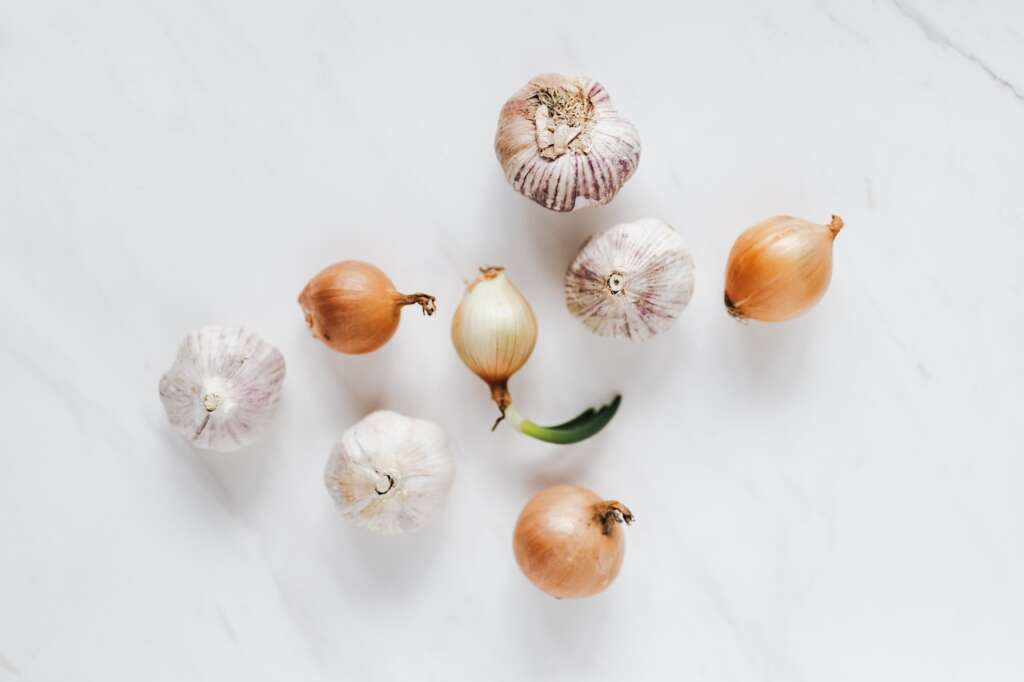
Chives and leeks are part of the onion family and are just as harmful to Shih Tzus. They can cause the same problems as onions and garlic. Think of them as the ‘bad guys’ in the vegetable world for your dog. Your Shih Tzu should avoid them just like they would avoid a scary vacuum cleaner!
Spicy Peppers
Spicy peppers might be yummy in tacos, but they’re a no-go for your Shih Tzu. They can upset their stomach and make them feel uncomfortable. Imagine eating a super spicy pepper and how it makes your mouth burn. That’s how your pup would feel!
The Hidden Risks in Some Veggies
Some vegetables, like tomatoes and eggplants, can be tricky. They’re usually okay when ripe and in small amounts, but the green parts are bad news. It’s like eating an unripe banana – not tasty or suitable for you.
When Accidents Happen: What to Do
Beware of Chives and Leeks
Accidents happen, and your Shih Tzu might eat something they shouldn’t. If this happens, don’t panic. Watch for signs like vomiting or acting strangely, and call your vet immediately. It’s like when you fall and scrape your knee – sometimes you need help to feel better.
Prevention is Better Than Cure
The best way to keep your Shih Tzu safe is to keep these dangerous veggies out of reach. Make sure they can stay in the trash or snatch food off the table. It’s like wearing a helmet before riding a bike – it’s all about staying safe.
What if a Shih Tzu eats a Toxic Vegetable?
If your Shih Tzu eats a toxic vegetable, it is essential to seek Veterinary care immediately. Symptoms of toxicity can include vomiting, diarrhea, and gastrointestinal bleeding. Treatment will be based on the severity of the symptoms and may involve hospitalization for IV fluid therapy and close monitoring. If your dog does eat a toxic vegetable, don’t wait to see if they develop symptoms. Please bring them to the vet right away.
Integrating Vegetables into Your Shih Tzu’s Diet
Starting Small: The Key to New Foods
Introducing new veggies to your Shih Tzu is like learning to ride a bike – start slow and steady. Begin with tiny amounts of one vegetable at a time. This way, you can see if they like it and ensure it doesn’t upset their stomach. It’s all about taking baby steps for a happy and healthy pup!
Portion Control: Not Too Much, Not Too Little
Portion control is super important. Even good things can be too much. Imagine eating only your favorite food daily – it wouldn’t be fun after a while, right? The same goes for your Shih Tzu. Vegetables should be a small part of their diet, not the whole meal. Keep it balanced with their regular food.
Variety: Spice of Life for Shih Tzus
Mixing different safe vegetables can make mealtime exciting for your Shih Tzu. It’s like having different flavors of ice cream to choose from! But remember, change things up slowly to keep their tummy happy. Introduce one new veggie at a time and see how they react.
Cooked or Raw? The Best Way to Serve
Some veggies, like sweet potatoes, are best served cooked to make them soft and easy to digest. Others, like carrots, can be great as a crunchy snack. Think of it as preparing a special meal – some ingredients are best cooked, and some are great just as they are.
Watching for Reactions: Safety First
Keep an eye on your Shih Tzu after they eat new veggies. It might not be the right food for them if you see them itching, upset tummy, or acting differently. It’s like trying a new food and finding out you’re allergic to it. Always better to be careful!
Consistency is Key
Stick to them once you find the veggies your Shih Tzu loves and does well with. Consistent feeding helps keep their diet balanced and their health in check. It’s like having a routine – it makes things smoother and safer.
The Vet’s Advice
Always talk to your vet before significantly changing your Shih Tzu’s diet. They can advise you on what’s good and what’s not. It’s like asking a teacher before you try a new experiment in science class – they know what works best!
What the Pros Say About Shih Tzus and Vegetables
The Importance of a Balanced Diet
Experts agree – a balanced diet is vital for a healthy Shih Tzu. Vets and animal nutritionists say that while veggies are great, they should only be a part of your dog’s diet. Think of it like a puzzle. Each piece, like proteins, fats, carbs, and veggies, fits together to keep your pup healthy. It’s not just about what they eat, but how it all works together.
Vegetables as Part of a Nutritional Plan
Animal nutritionists often suggest including vegetables for extra nutrients. They’re like nature’s vitamins, full of good stuff for your Shih Tzu’s health. But remember, every dog is different. What works for one may not work for another. It’s like each dog has their favorite meal – it must suit them.
Professional Advice on Introducing New Foods
When adding new veggies to your Shih Tzu’s diet, vets recommend going slow. Start with small amounts and watch how your dog reacts. It’s like trying a new food – you wouldn’t eat a lot at once, right? The same goes for your furry friend.
Warning Signs to Watch For
Vets also advise keeping an eye out for any weird symptoms. If your Shih Tzu starts itching, has tummy troubles, or doesn’t seem like themselves after eating certain veggies, it might be time for a vet visit. It’s like when we feel sick – sometimes we need a doctor to help us feel better.
The Role of Vegetables in Preventive Health Care
Prevention is better than cure, and vets often discuss how veggies can help. They can prevent obesity and heart disease by keeping your Shih Tzu fit and energetic. It’s like eating healthy to avoid getting sick.
Consulting With Your Vet: A Must-Do
The best tip from experts? Always talk to your vet before significantly changing your Shih Tzu’s diet. They know your pup’s health history and can advise you. It’s like asking a teacher for help – they have the answers you need to do well.
Conclusion
In wrapping up our veggie journey, remember that while vegetables are a healthy addition, they’re just a part of what balances a Shih Tzu’s diet. Each Shih Tzu is unique, so finding the right veggie they love is vital. Observing how they react to new foods is crucial, and consult your vet if anything seems off.
Feeding your Shih Tzu veggies isn’t just about nutrition; it’s a way to bond and show love. And when in doubt, your vet is your best guide. By thoughtfully incorporating vegetables and maintaining a balanced diet, you’re contributing to your Shih Tzu’s happy and healthy life, which is what every pet owner ultimately wants. A healthy diet means a happy Shih Tzu, and that’s a joy for any pet parent!
FAQ’s
Can Shih Tzus Eat Vegetables Every Day?
Just like we shouldn’t eat the same snack every day, it’s good to mix things up for your Shih Tzu, too. Vegetables can be a part of their daily diet but in small amounts. It’s all about balance and variety to keep them healthy and happy.
What If My Shih Tzu Doesn’t Like Vegetables?
Don’t worry if your furry friend turns their nose up at veggies. Just like kids, dogs have their tastes. You can try different veggies to see what they like, but if they’re not into veggies, that’s okay, too. There are plenty of other healthy snacks they can enjoy!
How Do I Know If a Vegetable Is Safe for My Shih Tzu?
Doing a little homework helps. You can look up safe veggies for dogs, or even better, ask your vet. They can give you a list of what’s good and what’s not. Remember, what’s healthy for us isn’t always healthy for our pups.
Are Frozen Vegetables Okay for Shih Tzus?
Frozen veggies can be an excellent treat, especially in the summer. But make sure they’re plain, with no added salt or spices. It’s like choosing a popsicle – the simpler, the better.
Can Vegetables Replace Meat in My Shih Tzu’s Diet?
Vegetables are great, but meat in your Shih Tzu’s diet is needed. Dogs need protein from meat for solid muscles and overall health. We need different kinds of food to stay healthy – dogs do too.

